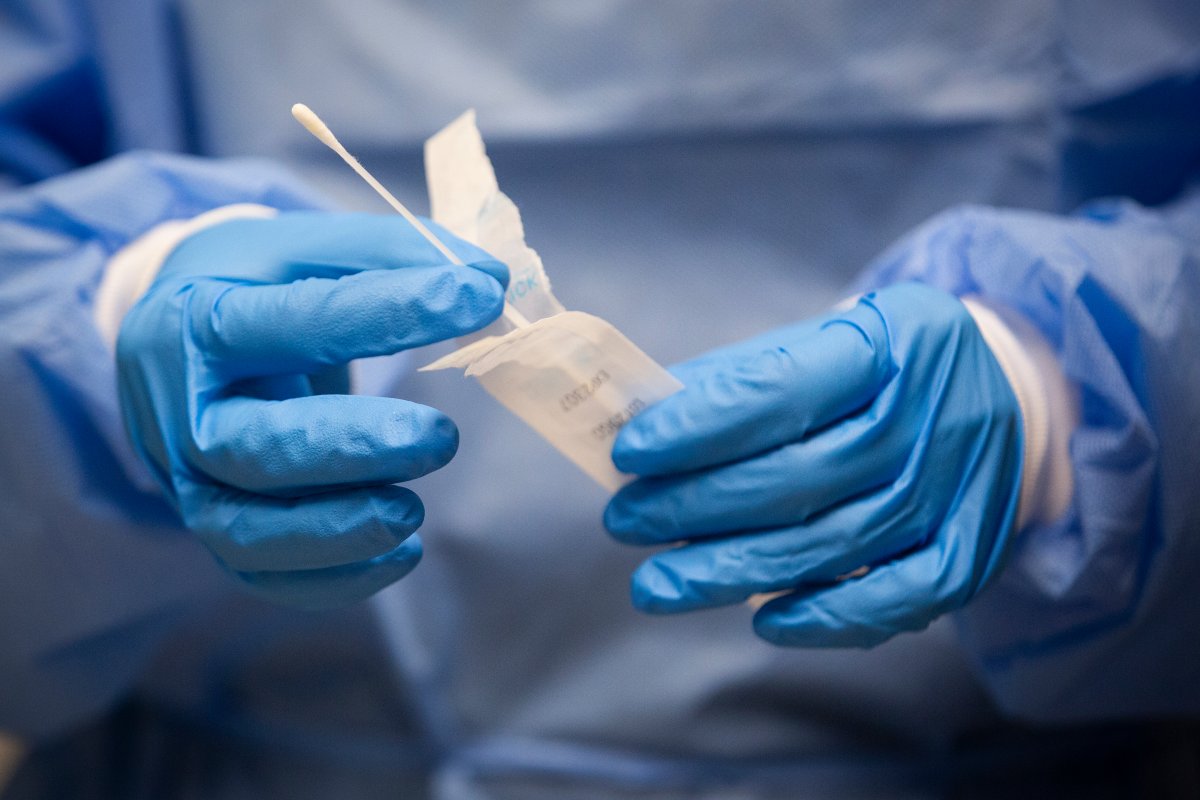Ottawa confirmed community spread of the Omicron COVID-19 variant on Saturday as another public health unit investigated likely outbreaks of the strain and the province reported more than 1,600 new virus infections.

The health unit covering Canada’s capital city announced the news in a Twitter post while reminding people to keep up with public health measures like wearing masks, limiting close social contacts and staying home when sick.
“We can confirm evidence of community transmission of Omicron in Ottawa,” the post said. “While this news is cause for concern, we know the same measures we have been practicing throughout the pandemic will help reduce transmission.”
The news of community spread came nearly two weeks after the city announced it had detected Canada’s first known cases of the new variant in two people who had travelled outside the country.
Since then, Omicron has also come to represent about 10 per cent of the province’s new daily cases, the province’s top doctor said on Friday, and has been linked to several large outbreaks within provincial borders.
The public health unit covering the Region of Waterloo said Saturday it’s “very likely” that 31 COVID-19 cases associated with two hockey tournaments held elsewhere in the province were the result of the Omicron variant.
Hockey players and their contacts were being advised to isolate and get tested, as the region’s top doctor warned that all residents should reduce their social contact in light of the “heightened risk” from the discovery.

Get weekly health news
“It is highly likely that the new Omicron variant is already here in Waterloo Region, and we expect that it will spread quickly,” Dr. Hsiu-Li Wang said in a written statement.
Public health for the region said 11 COVID-19 cases were linked to a hockey tournament that was held in London, Ont., and another 20 cases were associated with a separate tournament in Markham, Ont.
Teams from Waterloo Region attended both tournaments, but the health unit did not specify when the events took place.
Whole genomic sequencing results were still pending, but the health unit said the likelihood that both clusters are Omicron-related is “very high.” That’s because cases in both clusters have screened positive for a marker related to the variant, the health unit said, also citing the high number of cases already associated with the outbreaks.
Scientists are still probing Omicron’s unique characteristics, but it is believed to be highly transmissible. The World Health Organization has named it a variant of concern.
Dr. Kieran Moore, Ontario’s top doctor, said on Friday that Omicron is expected to become the dominant virus strain within weeks.
London, Ont., health officials said this week that one case in a large cluster of 40 infections was confirmed as an Omicron case, noting the cluster affected schools, child-care centres and a church. The region later recommended that people limit social gatherings to 10 vaccinated people indoors.
COVID-19’s infection curve continued its steady climb in Ontario on Saturday as 1,607 new cases were reported, along with five more virus-related deaths.
In response to rising cases and the Omicron threat, the province announced this week that it would pause plans to further lift public health rules in January, and would start offering booster vaccine doses to all adults early in the new year.
Moore has advised that people limit social gatherings over the holidays and work from home if possible. But the province hasn’t brought in any major new public health measures to curb the spread of the disease.










Comments